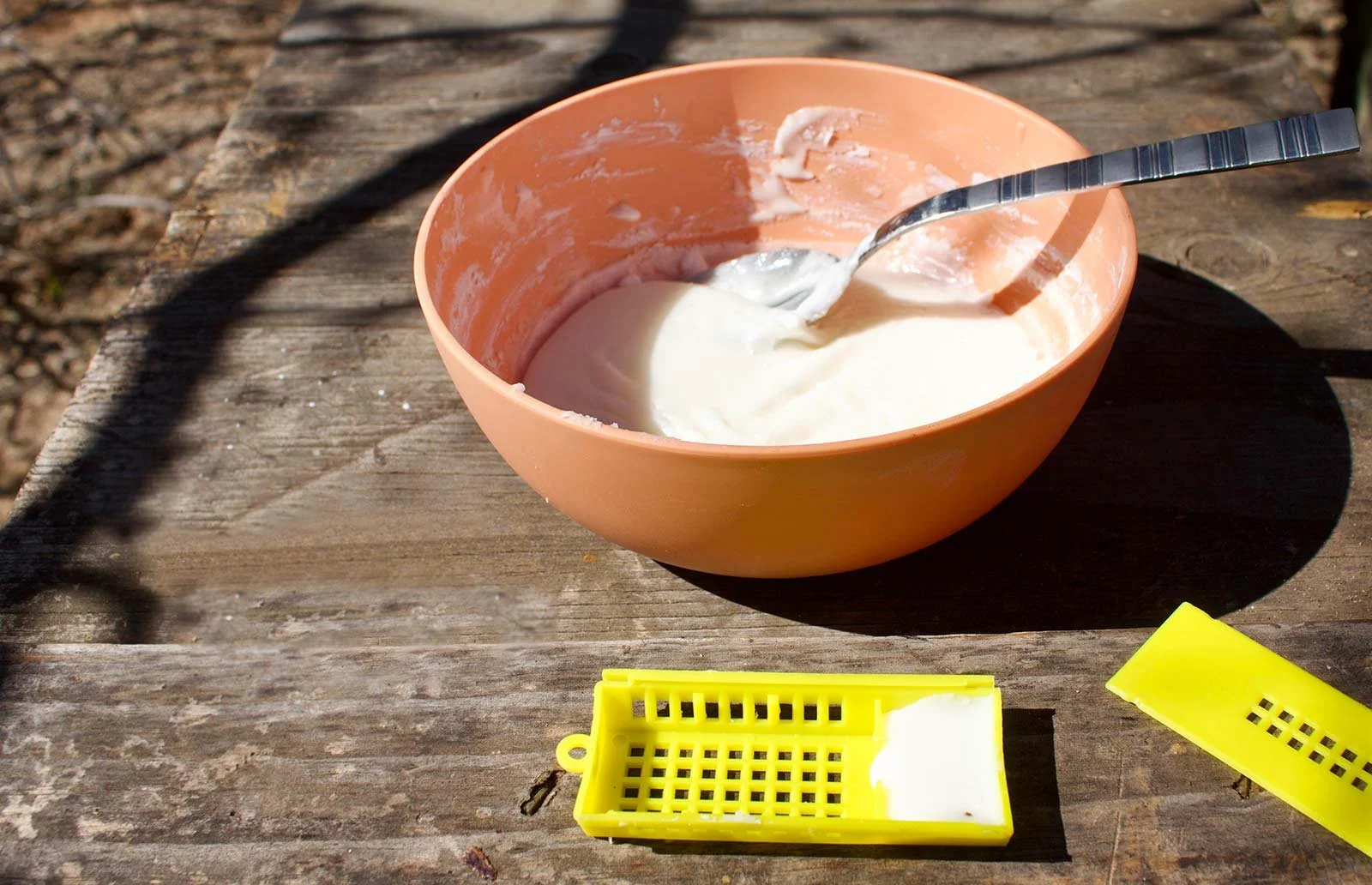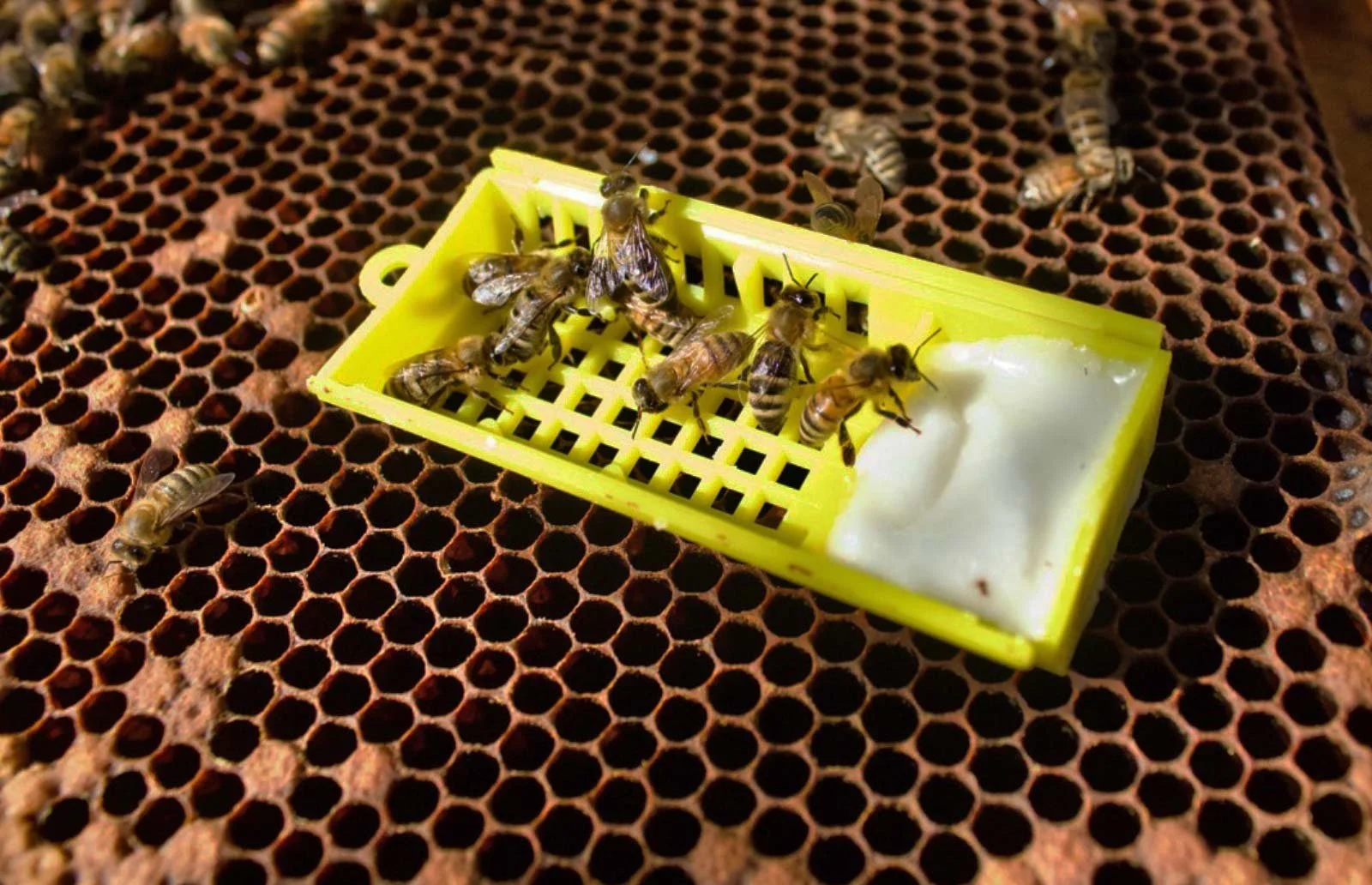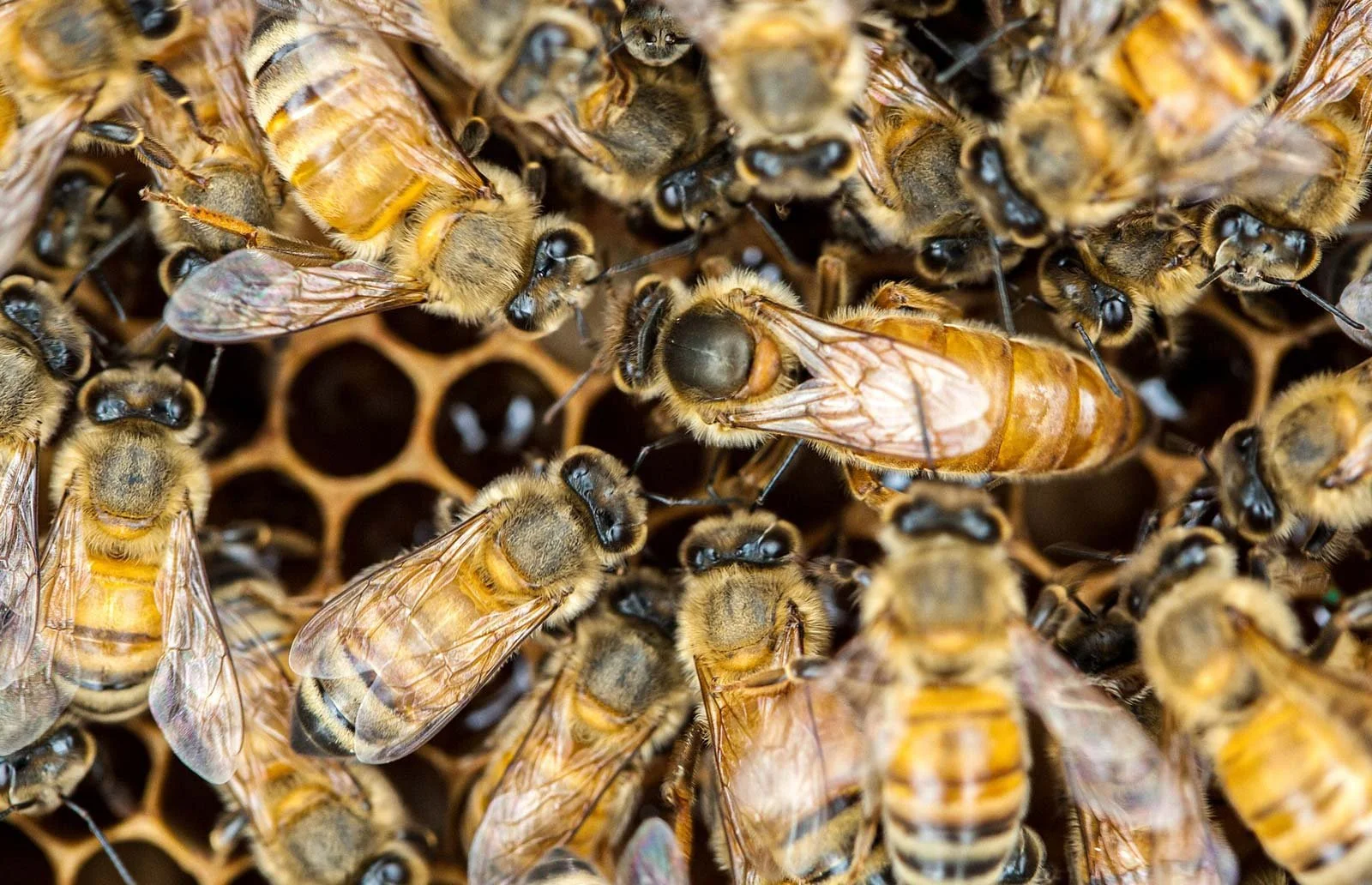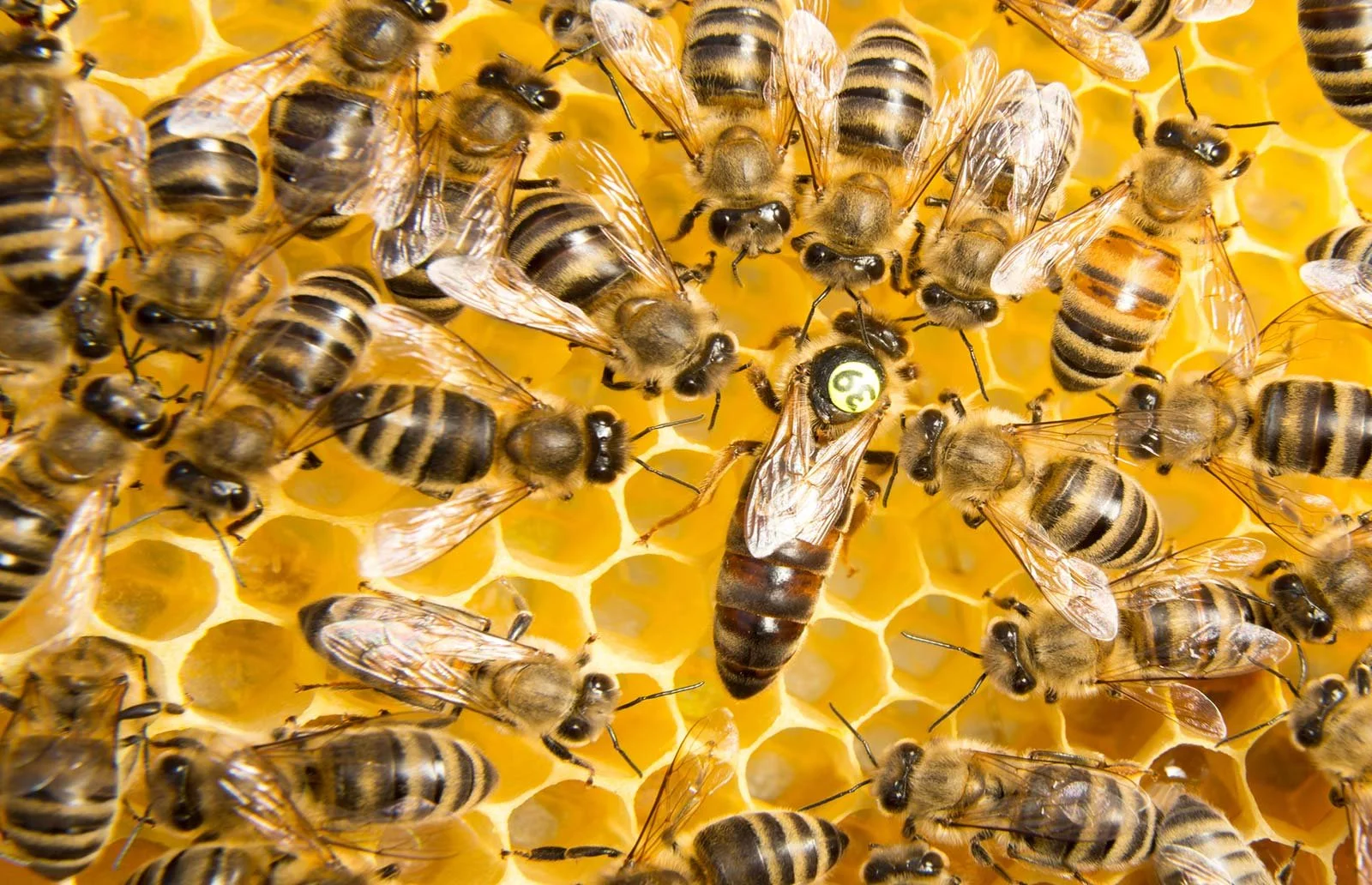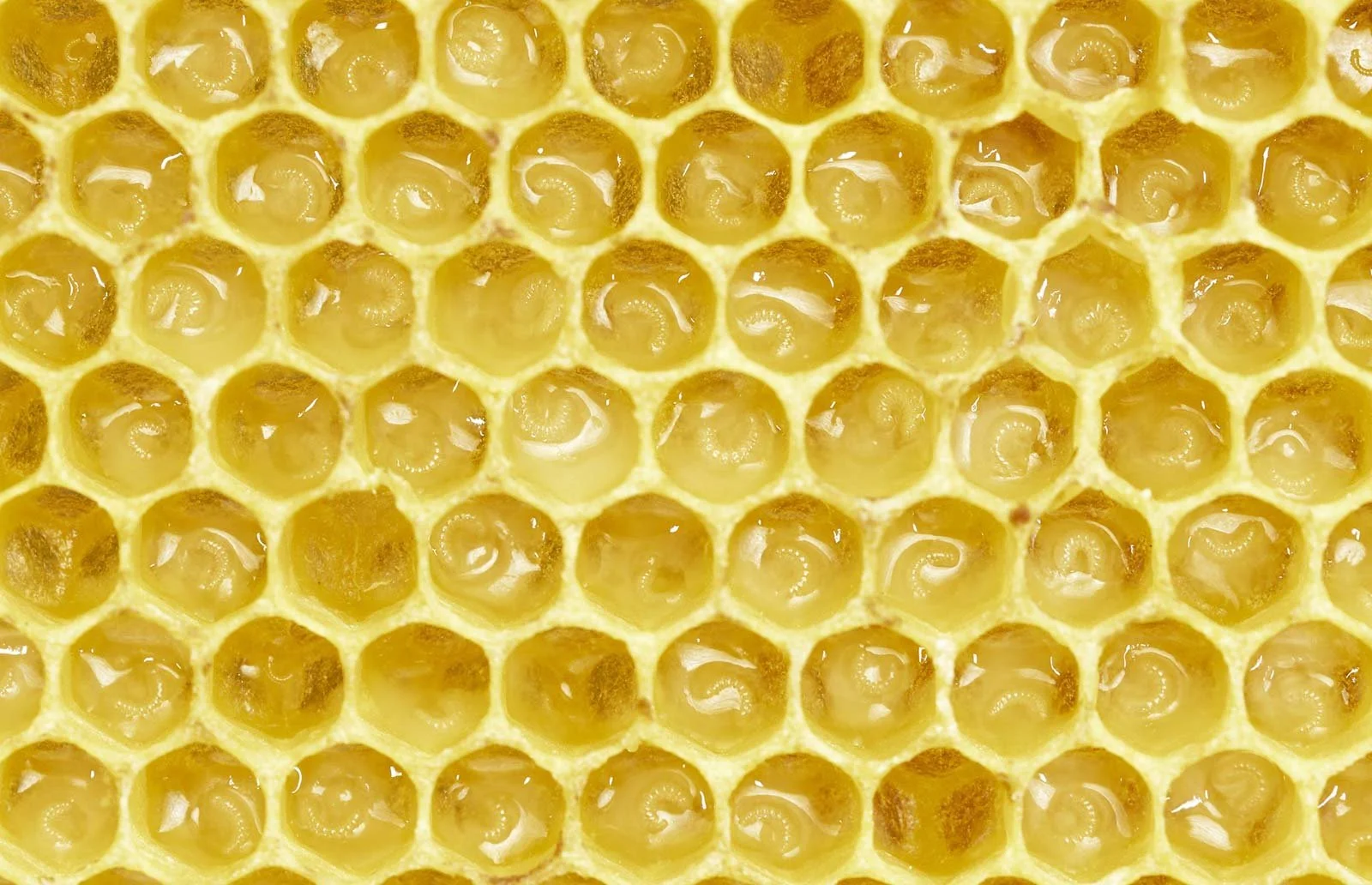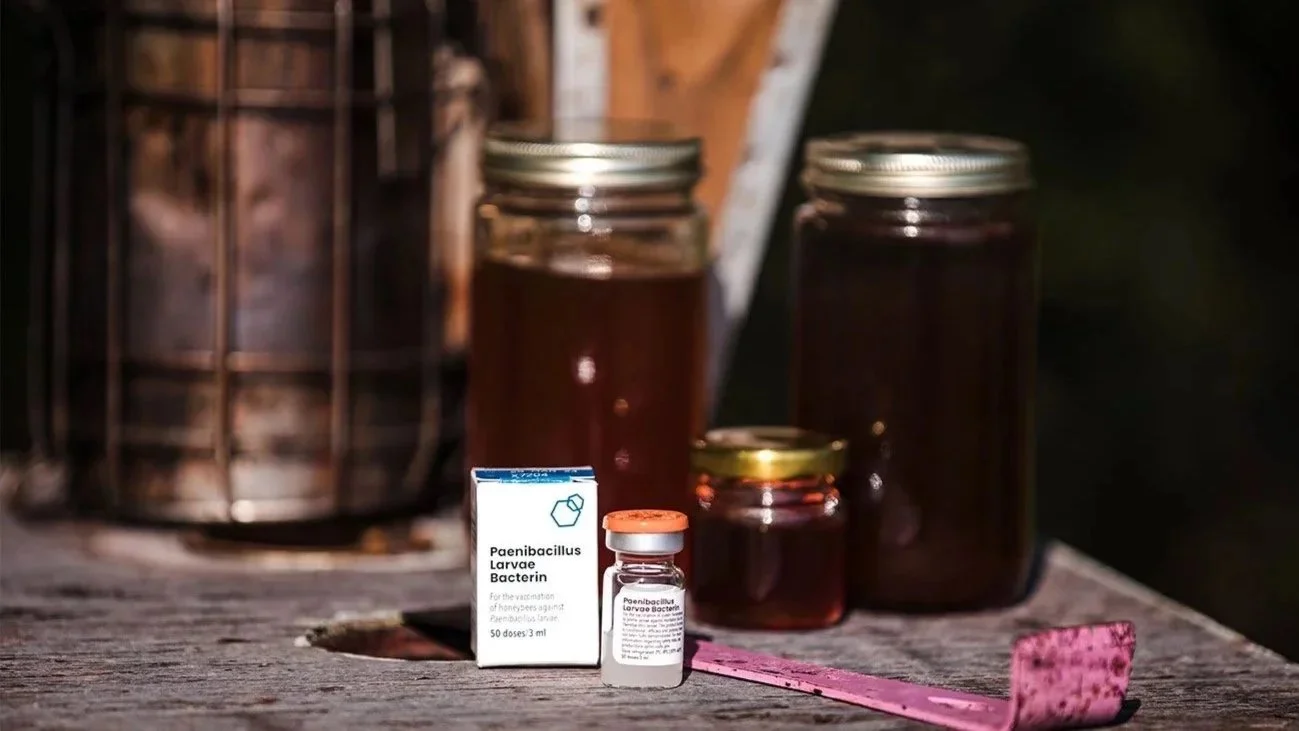
Veterinary
Resources
Honeybees play a significant role in agriculture and food production and are rightfully classified as livestock.
As such, they require the same type of veterinary resources as livestock to thrive. As honeybee veterinarians, your role in preserving the health and population of honeybees is significant. By providing guidance, medical expertise, and support to beekeepers, you contribute to the conservation of honeybees and the ecosystem that needs their support.
As a veterinarian involved in honeybee health, you’re trained to diagnose and treat diseases affecting honeybee colonies. This includes identifying bacterial, fungal, and viral diseases, and providing medical expertise on how to prevent and treat these diseases. One such disease includes the highly contagious bacterial disease, American Foulbrood (AFB).
This is where Dalan’s innovative AFB vaccine can be an indispensable veterinary resource for practitioners.

How You Can Help Control American Foulbrood Disease (AFB)?
American Foulbrood is a bacterial disease caused by the spore-forming bacterium Paenibacillus larvae. In the U.S., AFB outbreaks had previously been controlled with the routine use of antibiotics. However, heavy antibiotic usage has its own consequences, such as bacterial resistance and negative effects on overall hive health. In 2017, the FDA eliminated the prophylactic use of antibiotics, leaving the industry without an effective solution.
Dalan’s prophylactic and sustainable approach aims to decrease the risk of infections, saving not only hives, but protecting from revenue loss and excess costs.
How to Use the Vaccine
When queen bees are fed Dalan’s oral vaccine, protection works through a biological mechanism called Transgenerational Immune Priming (TGIP), whereby the queen passes immunity to her daughters before they hatch. Dalan’s vaccine exposes queen bees to inactivated P. larvae, which enables the larvae hatched in the hive to resist infection to AFB.
How it works
The Dalan vaccine technology exposes queen bees to inactive (i.e., “dead”) bacteria, which enables the larvae hatched in the hive to resist infection.
Dalan can assist in creating a custom vaccination program for your operation that is compatible with a variety of commonly used queen cages.
Our vaccine is conditionally licensed by the USDA-CVB and CFIA-CCVB for the vaccination of queen honeybees to prime larvae against mortality due to Paenibacillus larvae.

Dalan’s AFB vaccine can help ensure the health and survival of honeybee colonies, making it an essential veterinary resource.
Dalan's AFB Vaccine benefits
-
Offering an AFB vaccination service for honeybee colonies can enhance the range of services provided by honeybee veterinarians. By offering this service, veterinarians can better serve their clients and contribute to the overall health and sustainability of honeybee populations.
-
Honeybee veterinarians have the unique opportunity to educate beekeepers about the benefits of vaccination as part of their disease prevention strategies. By raising awareness about the availability and effectiveness of our AFB vaccine, veterinarians can empower beekeepers to make informed decisions about protecting their colonies against AFB.
-
Our vaccine offers honeybee veterinarians a new tool for managing AFB. By providing a means of prevention, the vaccine may help veterinarians reduce the economic losses and environmental impact associated with AFB outbreaks.
These reasons and more are why honeybee veterinarians are encouraged to consider Dalan’s AFB vaccine as part of their disease mitigation strategies. Take the proactive step to help safeguard your client’s honeybee colonies from AFB by contacting Dalan today for more information on all our resources.
Purchasing the Vaccine
United States
A prescription is not required for use of the vaccine in the United States. Beekeepers in the US can acquire the vaccine directly from Dalan, or from their Veterinarian’s office. If you are interested in carrying the vaccine in your practice, please contact Dalan for a quote today.
Canada
A prescription is required for use of the vaccine in Canada. Beekeepers interested in purchasing the vaccine from Dalan will need to present a signed Veterinarian prescription to order. For more product information, you can view our package insert or contact us today. If you are interested in carrying the vaccine in your practice, please contact Dalan for a quote today.

Frequently Asked
Questions
What is American Foulbrood (AFB)?
American Foulbrood is a bacterial disease caused by the spore-forming bacterium Paenibacillus larvae. The disease-causing bacteria can be present at subclinical levels in hives which can erupt at any time. Infective spores may last in the environment for several decades.
How does the vaccine work?
The vaccine, containing a killed pathogen, is administered orally to the queen honeybee. Attendants caged with the queen are fed queen candy containing the vaccine. These attendants digest the vaccine and produce royal jelly containing vaccine particles, which is fed to the queen. As she ingests it, parts of the vaccine are transferred to her ovaries and deposited in the eggs, exposing the larvae and triggering early immunity.
How does Dalan's AFB vaccine compare to traditional methods of managing AFB?
Dalan’s AFB vaccine offers a prophylactic, non-chemical approach to managing AFB. It focuses on maintaining hive health preventatively, providing a safer and more cost-effective solution in the long run.
Do beekeepers need a prescription to use the vaccine?
In the United States, beekeepers do not need a prescription to purchase the vaccine. In Canada, a prescription from a veterinarian is required. For more product information, you can view our package insert or contact us today.
Is the vaccine approved for organic farming and organic honey production?
Yes, the vaccine is suitable for use in organic agriculture. It is non-GMO and does not contain any chemicals or harmful preservatives.
How can I purchase Dalan’s vaccine?
To request a quote, please contact us today .
Veterinary Webinar
Dalan Animal Health presents an informational webinar discussing the science behind the first vaccine for honeybees, how it can be used in hives, and how Veterinarians can now offer this new tool to their beekeeping clients.



